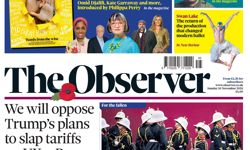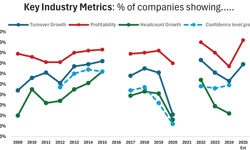Reading the obits on Margaret Thatcher in the national newspapers this week shows them deeply divided about her impact on the country.
To some Margaret Thatcher is the woman who saved Britain – to others she represented a mean spirited greed.
Here’s a sample:
The Daily Mail: "She was a giant, beside whom other peacetime politicians of the 20th and 21st centuries look like mere pygmies."
The Guardian: "Her legacy is of public division, private selfishness and a cult of greed, which together shackle far more of the human spirit than they ever set free."
Simon Kelner in the Independent: "Above anything else, Mrs Thatcher implanted the gene of greed in the British soul. And, in the end, that is the poison of her legacy."
The Sun said: "Sun readers benefited as the Grantham grocer’s daughter slashed taxes and let council tenants buy their houses, a measure that spread prosperity among working families more than any since. Of course Mrs T made enemies. The left-wing BBC sneered. Rebuilding the clapped-out and strike-torn 1970s economy could not be pain-free. Bitter memories linger. But Britain emerged far stronger."
The Daily Mirror claimed: "People's minds were made up long ago on Margaret Thatcher. To some she fought for Britain. Many others, including the Daily Mirror, felt she spent 11 years fighting against Britain."
While the Telegraph noted: "Despite the widespread tributes on her passing yesterday, Lady Thatcher, of all people, would not have expected her enemies to wipe the slate clean in death. To paraphrase the words of St Francis of Assisi which she quoted on entering Downing Street, she certainly brought truth where there was error, but to deliver harmony was never her fate."
The same is true when her legacy to the media is considered. It starts with Wapping, which some celebrate as the point where the national press was liberated from the stranglehold of the print unions.
They argue that without Murdoch’s boldness, a number of national newspapers would have closed and new ones like Today and the Independent would never have been able to afford to launch. Sometimes Wapping is portrayed as an ugly street battle, but it was as much fought out in the courts with News International able to use new union laws introduced by the Thatcher Government. The print unions faced large fines and sequestration of their assets.
Rupert Murdoch in The Times this week wrote of Margaret Thatcher: “I found her attitude an inspiration in my business life — and never more so than when faced with the recalcitrance of the print unions in the 1980s. At that time I would regularly be summoned to meetings of the Newspaper Publishers Association to deal with the unions’ latest demands. Everyone would sit around the table and agree to stand firm and by the time they’d got back to their desks, they had given in. It was hopeless.”
Some national newspapers can’t understand why papers like the Guardian and Independent which benefitted from the defeat of the print unions and were able to bring in new technology aren’t more grateful to Murdoch and Thatcher.
Apart from the fact that the national press finds it hard to unite on anything, there was a suspicion from Murdoch’s rivals that he was too close to Thatcher and had become too powerful by being allowed to own the Sun, News of the World, Sunday Times and The Times.
It emerged earlier this year that Murdoch had a secret meeting with Thatcher in Chequers before he was allowed to buy the The Times and Sunday Times without it being referred to the Monopolies Commission.
Former Sunday Times and Times’ editor Sir Harold Evans told the BBC: "It's highly improper. Here's a prime minister meeting one of a number of bidders for Times Newspapers in secret. There's no mention of the law on monopolies. The whole thing is so squalid, I don't know whether to laugh or cry at being vindicated after all this time."
The “special relationship” between Murdoch’s companies and whichever Government is in power was shown at the Leveson Inquiry in their dealings with Tony Blair and the personal emails between David Cameron and Rebekah Wade. It is why Murdoch’s rivals were worried that the News Corp bid to take full control of BSkyB would be waved through by the Government.
Thatcher can also be credited or blamed for deregulating broadcasting. Murdoch in his Times piece this week claimed: “We took huge risks in creating satellite television, which many critics decried as the end of civilisation, but as a result we created thousands of jobs and viewers now enjoy far greater choice. Mrs Thatcher understood that risk was a vital ingredient in a free enterprise society.”
Critics claim that Thatcher had it in for the BBC and the monopoly ITV broadcasters following her rows with the BBC over the Real Lives programme and her rage at Thames Television’s Death on the Rock documentary. The Government’s ban on broadcasting the voices of supporters of organisations linked to terrorism in Northern Ireland was attacked by the NUJ and press freedom groups.
But there is one part of her media legacy that might unite the industry. In the mid-1980s there was a strong indication that the Government was about to impose VAT on newspapers, magazines and books.
Industry groups argued it was “a tax on reading” and estimated that four national newspapers would die and magazines would lose up to 10 per cent of their circulation if the press lost its cherished zero-rating.
In his autobiography the former Chancellor Nigel Lawson revealed he came close to introducing the tax, but was persuaded not to by Margaret Thatcher. "Look, Nigel," she said, "this is a wonderful budget - we should get a wonderful reception. We don't want to spoil that by putting VAT on newspapers."
There’s something Maggie Thatcher did for us that we can all agree on.
But in the end there is probably only one other person whose impact on the media divides opinion so dramatically. And that's Rupert Murdoch.












